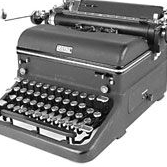Using UDEC_xxx/ UBIN_xxx / UHEX_xxx in Spin2
 PropGuy2
Posts: 365
PropGuy2
Posts: 365
The new DEBUG in the SPIN2 Documentation lists several useful functions for Decimal to Binary to Hex conversions. Is there a link or routine or other??? to allow these functions can be directly used with SPIN2 via the VGA / SEND commands?


Comments
For the DEBUG system, all related code and data get tucked into the too 16KB of RAM and then write-protected from non-debug access.
PUB UDEC_LONG( value )
but only if the DEBUG code can be easily transposed into SPIN2 functions, and regardless of memory space.
and bundling it like the original SimpleNumbers.spin of P1 fame
dat nbuf byte 0[16] pub udec(value, digits) : p_str | len, d bytefill(@nbuf, 0, 16) ' clear buffer p_str := @nbuf ' point to buffer digits := 0 #> digits <# 10 ' fix digits len := 0 repeat d := value +// 10 ' get a digit byte[p_str++] := d + "0" ' convert to ASCII value +/= 10 ' remove digit from value if (digits) ' specified length? if (++len == digits) ' done? quit else if (value == 0) ' done? quit byte[p_str++] := 0 ' terminate the string return revstr(@nbuf) pub revstr(p_str) : result | first, len, last '' Reverse the order of characters in a string. result := first := p_str ' start len := strsize(p_str) ' length last := first + len - 1 ' end repeat (len >> 1) ' reverse them byte[first++], byte[last--] := byte[last], byte[first]If you have a .str() method, you can do this: The second parameter is the number of digits to print; 0 is auto width, 1..10 limits the width (and may truncate).
CON _clkfreq = 180_000_000 OBJ f: "ers_fmt" ser: "SmartSerial" PUB demo(): i ser.start(115_200) ' pick your baud rate send := @ser.tx ' set function to send one character send("hello", f.nl()) repeat i from -2 to 3 send("i=", f.dec(i), " hex=", f.hexn(i, 2), " unsigned=", f.unsdec(i), f.nl())Another extension I just thought of when looking at this might be if the send function was itself also format aware as it outputs characters, we could possibly use that to support format control string portions like this for C programmer types... it's somewhat of a hybrid approach compared to normal printf, working by splitting into multiple format strings. e.g.
send("i=%d", i, " hex=%2x", i, " unsigned=%u", i, "\n")The sending function would need to look out for the % escape or \ chars and process the next item accordingly, but you could only do one escape per string at the end of it and no other characters could follow that until the next one. In the past I've tried to get send to take a single format string at the start but you do run into issues capturing the full string before all the data and also differentiating the chars from integers etc. Downside with the above is that the sender would need its own formatter object/capabilities (or its own send redirect control to other senders) which could add code overhead. Your method is clean and easily extended to other formats (if somewhat more verbose), and I like it. Maybe unsdec could be renamed udec, which reads better (to me anyway). EDIT: oops that name would clash with Chip's use above.
By the way I tested the maximum number of send arguments, it seems to be limited to 15 in the version of FastSpin I had.
This could be handy to construct dynamic strings without lots of extra baggage to code up on the calling side, though being invoked per character it could be slower to run vs directly using other fixed strings and mem copies etc.
OBJ fmt: "stringfmt" PUB demo() : x x:=20 send := fmt.sprint(@strbuf1, 100) ' returns address of string printing format routine for send send("hello, x= ", fmt.dec(x), 0) send := fmt.sprint(@strbuf2, 50) send(fmt.hex(20), 0) DAT strbuf1 long 0[100] strbuf2 long 0[50]I found I could eliminate it if I filtered the tx routine to ignore values outside ascii range from 0-255 and just return -1 from each format routine. Then when this return value is also passed through to send() it will filter the -1. It's working now, files attached.
I'm not seeing that in 4.3.0.
I'd do that by having a separate string buffer class that appends characters to the string, and then using the original formatting class with SEND set to the "addchar" method. Something like:
OBJ fmt: "ers_fmt" str: "stringbuf" PUB demo() : x ' initialize string buffer with 100 characters str.init(@strbuf1, 100) send := @str.addchar x:=20 send("hello, x= ", fmt.dec(x), 0) DAT strbuf1 long 0[100]That's a fastspin bug, it doesn't happen in PNutActually I think having a good string manipulation library or a nice suite of methods for P2 would be good, particularly once dead code removal is working (I know Chip wants to add that add some point to PNut SPIN2 so hopefully we can count on this). There really isn't much string processing inherently built into SPIN2 apart from strsize(), and strcomp() so it sort of needs to be added by each user right now.
Using some small amounts of inline PASM2 could work out reasonably well for special character searching or other token parsing on the P2, especially in the interpreted version. The sort of things available in <string.h> for example. This could help things like file parsers and other text processing applications work at higher speed on the P2.
Using this approach my test programs and drivers can now work with both Fastspin and PNut tools and now I should be able to directly send formatted strings/numeric stuff into my video buffer region(s) or serial port using SEND and your format object. It's very cool now, thanks so much for this!